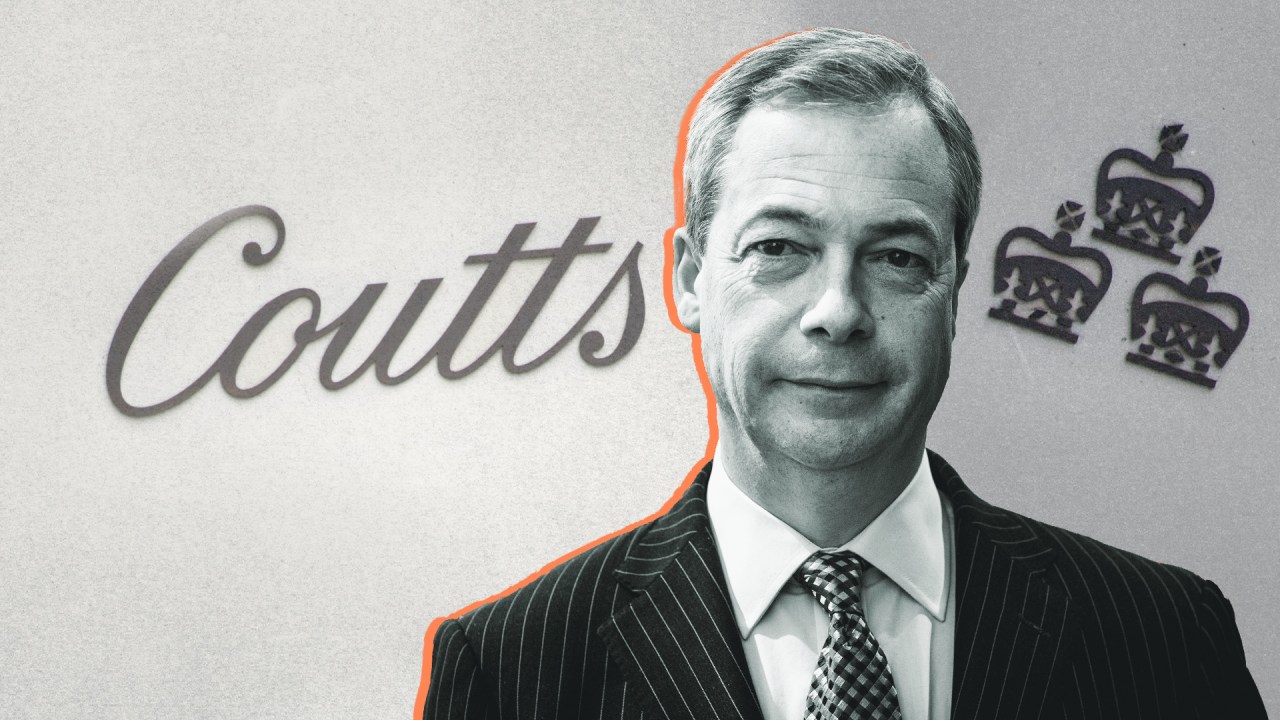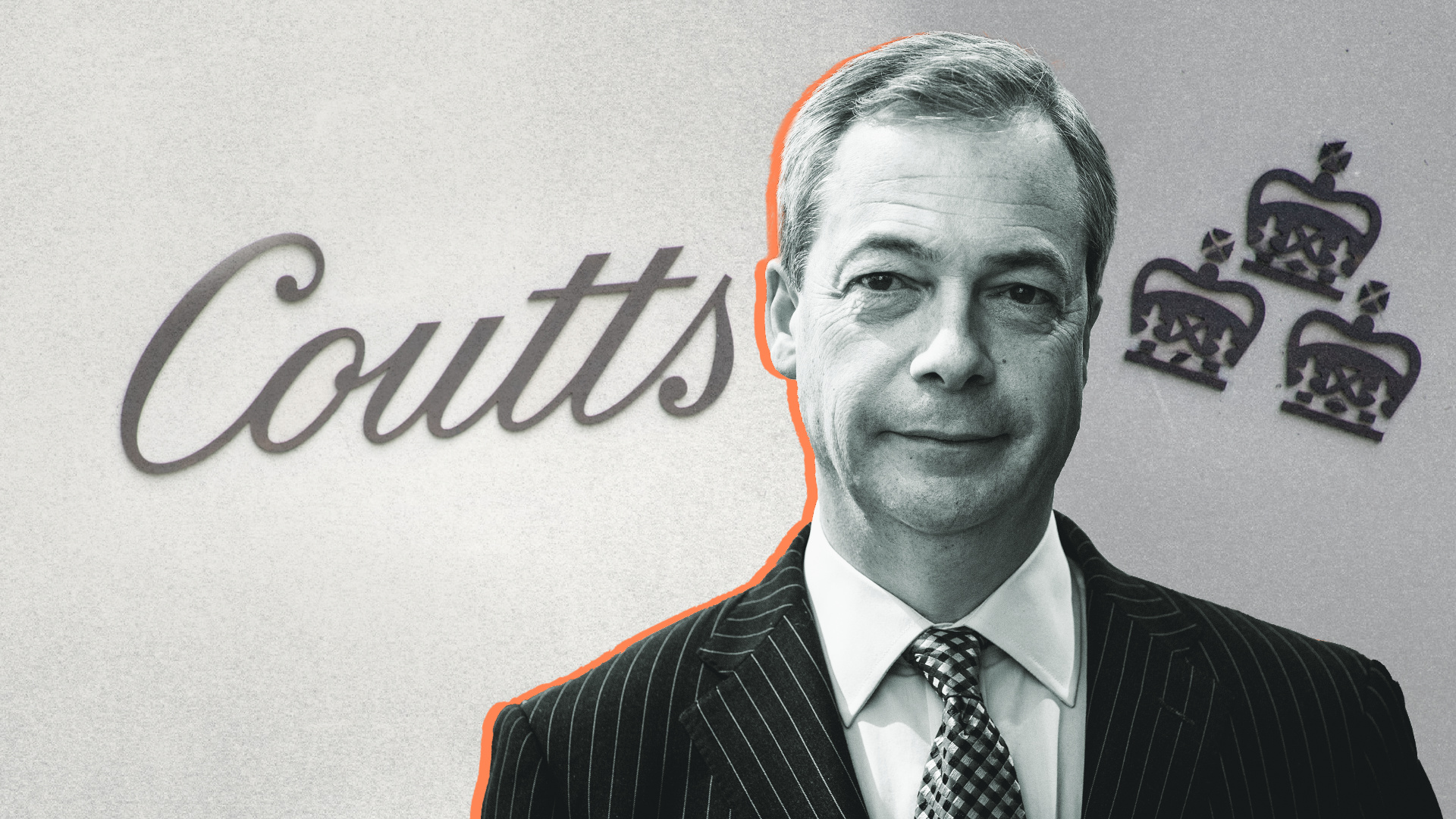When Nigel Farage said Coutts had closed his bank account and claimed political victimisation, many thought he was making it up. The BBC reported that Farage didn’t have enough of a cash balance to sustain an account in the King’s bank and many who oppose his politics suspected this was a TV talk-show host being provocative. But this week he produced a document that proved it was precisely as he claimed. The bank had decided that Farage’s views were ‘at odds with our position as an inclusive organisation’, so he was out.
So what we have here is discrimination masked as ‘inclusivity’, bigotry dressed up as tolerance. The board of Coutts may well have been appalled by the Ukip project but the party got more than 3.5 million votes in the 2015 general election. It is true that Farage is no fan of the European Union and can be crude, even distasteful, in some of the points he makes. But if he’s beyond the pale, then so is a significant chunk of the British electorate.
The Coutts document keeps coming back to the ‘reputational risks’ of having Farage as a customer
This shows that political discrimination is alive and well: people are being attacked or, in some cases, sacked because they express the wrong opinions. It happens time and time again that people are targeted for their views on faith or politics, or on the traditional family or gender. Britain ought to be a pluralist society, where those who sympathise with movements such as Ukip or the Communist party still have their rights as citizens and consumers upheld.
The Coutts charge sheet is fascinating. It is accepted that Farage is blameless as a customer – he has been ‘professional, polite and respectful’ in his dealings with the bank. But ‘his views do not align to our values’, it says. In what way? The document doesn’t quite say. Brexit is mentioned 86 times in 40 pages and the fact that Farage is friends with the family of Novak Djokovic is thrown in (this is deemed suspicious because of the tennis player’s refusal to take a Covid-19 vaccine). The point the document keeps coming back to is the ‘reputational risks’ of having Farage as a customer: by which it seems to mean the many unfavourable articles written about him. All this is in the dossier.
The list of charges includes being ‘anti-Net Zero’. It lists conspiracy theory websites which ran stories about Farage taking Russian money – then admits there is no proof of any link to Russia whatsoever. Without any proof of any wrongdoing, the bank resorts to slurs: that ‘at best, he is seen as xenophobic and pandering to racists and at worst he is seen as xenophobic and racist’. Not a scrap of evidence is presented for this conclusion. But under this formulation, it doesn’t matter. What matters is not whether Farage has ever said anything racist: what matters is that he is ‘seen as’ racist.
This all raises the question: how many other political dossiers have been compiled on Coutts customers? How many other accounts have been closed by the bank’s politburo? What are the ‘values’ to which Coutts refers and who decides them? And could they perhaps be published, so that other customers and would-be customers can find out if they pass the test? Given that Coutts is 40 per cent owned by the taxpayer, the public has the right to know what is happening both within that bank and at NatWest, the parent company. In a free society, private companies ought to be free to serve who they like – but there are limits. Landlords can no longer refuse tenants due to race or nationality; companies can no longer fire employees for gender critical views.
We live in an era where all kinds of rights are protected. The right to dissent ought to be among them. No one should be deprived of any financial service due to their opinions (which should have become obvious when PayPal and other US-based banks started closing the accounts of certain clients on political grounds).
We have seen many times how financial institutions have been roped in and used for political persecution – not only in totalitarian countries but in democracies, too. Justin Trudeau was enraged when truck drivers protested against his lockdown measures; a fundraiser for the drivers was closed down under an Emergencies Act implemented by Trudeau and 76 bank accounts linked to the protestors were frozen. Canadians now ask why basic democratic protections were so easily swept away by their prime minister to quell a protest.
During an employment tribunal for an SNP member who had been suspended from work by the MoD, a judge ruled his belief in Scottish independence was a ‘genuinely held philosophical belief’ under the Equalities Act. It should be against the law for anyone to be penalised in any way based on their political beliefs. The Coutts star chamber ought never to have been assembled. That such discrimination appears to be routine in the bank raises huge questions about the culture within it, as well as in the NatWest group and the financial sector as a whole. A parliamentary inquiry will now be needed to get to the bottom of this matter.
This article is from the forthcoming issue of The Spectator, out tomorrow.







Comments